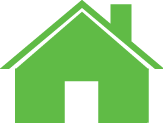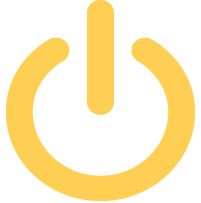Action Overview: Develop the Professional Learning Systems (PLS) System
This set of resources is designed to help educators develop a professional learning system.
Introduction
In Action Overview: Creating Culture, leadership teams began backward mapping the theory of action by setting a goal for the equitable academic and experiential outcomes for learners and identifying the necessary changes in teaching and learning environments and educator knowledge, skills and dispositions to make that goal attainable. In this action, leadership teams continue the process by setting up the professional learning system that will allow for the necessary changes to occur to meet the student goals by:
· Defining the principles that will help the system operate effectively
· Identifying the opportunities that will drive the system
What standards does the professional learning system need in order to be successful?
The PLS needs to be grounded in a set of professional learning standards, such as those outlined by Learning Forward:
· Learning communities
· Resources
· Learning designs
· Outcome
· Leadership
· Data and implementation
These standards for professional learning help to define quality indicators that will guide the system and take into account the needs of both educators and learners.
As leadership teams define the system that will provide the learning educators need to improve instruction and meet their goal for students, they need to consider resources, outcomes and leadership by outlining the:
· amount of time during the year needed for professional learning
· skills needed for those providing the learning opportunities
· knowledge, skills and/or dispositions that need to be addressed within the educator workforce
· professional learning requirements educators are expected to complete for various roles, advancements, licensure, implementation, etc.
· professional learning that should be emphasized to ensure equitable learning opportunities are provided that meet the needs of all student groups
· alignment of outcomes with educator performance and student curriculum standards across organizational initiatives
The principles for the professional learning system determined by the leadership team should focus on building habits among adults through privatization of practice, supporting openness and collaboration and honoring inquiry in order to transform instructional practices (Education & Society Program, The Aspen Institute). This will ensure educators have the support needed to employ effective instructional practices to best meet the needs of all students.
What opportunities will drive the System?
With the principles in place, the leadership team should identify the opportunities that will provide the learning experiences educators need to improve teaching and learning and meet the student outcome goal(s). These opportunities should integrate theories and research to achieve the intended outcomes while moving away from opportunities that are more ‘one and done’, ‘sit and get’, and/or that solely rely on third parties to facilitate workshops to instead facilitate opportunities that will build deeper learning for educators and develop a stronger skillset that impacts student achievement.
The Effective Professional Development report from the Learning Policy Institute recommends professional learning opportunities that:
· Are content focused
· Incorporate active learning utilizing adult learning theory
· Support collaboration, typically in job-embedded contexts
· Use models and modeling of effective practice
· Provide coaching and expert support
· Offer opportunities for feedback and reflection
· Are of sustained duration
When identifying the opportunities the leadership team should incorporate various stakeholders in the decision-making process for determining:
· How much time should be allocated in the workday and year for professional activities such as: coaching, training, professional learning communities, observations, and other professional development
· What knowledge and skills are needed for those delivering professional learning
· How professional learning is supported
Every site should have teachers and administrators with expertise and experience who have significant responsibility for facilitating adult learning and for ensuring supporting conditions for professional learning are in place (The Aspen Institute).
Suggested Activities
How do educators use Portal resources to develop the professional learning system?
Develop a deeper understanding of transformative professional learning: Activity Directions: Powerful Professional Learning
Related Content
Sources
Aspen Institute. (2018). Developing a professional learning system for adults in service of student learning (Publication). Washington, DC: Author.
doi: https://www.aspeninstitute.org/publications/developing-professional-learning-system/
Killion, J. (2013). Comprehensive professional learning system: A workbook for states and
districts. Oxford, OH: Learning Forward.
Education & Society Program. Developing a Professional Learning System for Adults in Service Learning. The Aspen Institute, Washington D.C.
Fullan, M., & Quinn, J. (2016). Coherence. Thousand Oaks, CA.: Corwin
Learning Forward Standards for Professional Learning https://learningforward.org/standards-for-professional-learning
Back to Strategy Overview: Professional Learning System.






